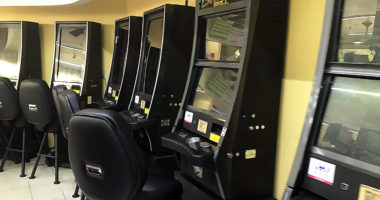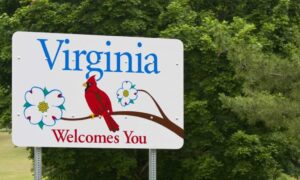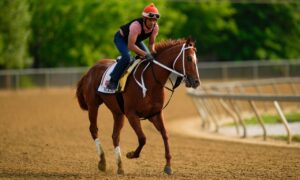
The recent development of Virginia lifting the ban on skill games can be attributed to a longtime NASCAR driver.
The recent legislative change is attributed to Hermie Sadler, a business owner from Virginia who has had a long career as a NASCAR driver and broadcaster over the past three decades.
After Sadler, a 52-year-old individual, filed a petition for a preliminary injunction, the Greensville Circuit Court approved the motion on Monday. This injunction effectively prevents the enforcement of Senate Bill 971, a law that prohibited the use of “gray machines” starting from July 1.
For the time being, the VA skill machines, typically located in small establishments like convenience stores and bars, have the capability to restore the lighting.
Why Sadler pushed for lifting the ban
Skill games closely resemble traditional slot machines typically found in brick-and-mortar casinos. Nevertheless, due to their inclusion of a debatable “skill” element in gameplay, they managed to operate and expand in a legal gray zone until the recent prohibition.
Virginia’s recent relationship with video gaming terminals has been intricate.
In the midst of the COVID-19 pandemic, Virginia legislators made the decision to grant skill games a temporary exemption for one year before implementing a ban. Additionally, they imposed taxes and regulations on these games.
The outcome of the efforts exceeded $100 million in funds allocated towards combating the coronavirus in Virginia. Consequently, business owners in Virginia, such as Sadler, were optimistic that this would pave the way for the complete legalization of skill games.
Despite Virginia’s plans to legalize sports betting and establish full casinos, owners of skill games did not receive much legislative support.
Sadler, the owner of truck stops in southern Virginia, is raising concerns about the constitutionality of legislation that prohibits skill games. Similar to other business owners in Virginia, he experienced a decline in profits when the machines were no longer operational.
Next steps for Virginia skill games
In Emporia, VA, the judge presiding over Sadler’s case declared that the law was overly ambiguous and, in truth, infringed upon the rights protected by the First Amendment.
Sadler initiated the lawsuit against VA Governor Ralph Northam and Attorney General Mark Herring with the support of a strong legal team.
Sadler and several other business owners are now able to legally offer their skill games until the hearing on May 18, 2022.
The owners receive a portion of the profits generated by the machines. However, there are additional advantages associated with having these machines available. One notable benefit is the stickiness factor, where players who engage with the electronic games often tend to purchase beverages and snacks from the establishments hosting them.
The gray-machine revenue constituted a significant portion of the annual earnings for numerous business owners.
According to WRIC.com, Bill Stanley, the legal representative for Sadler, stated that…
The fight has only just begun. In May, we will return to seek a declaratory judgment in order to secure a permanent resolution. Additionally, we anticipate a forthcoming challenge in the Virginia legislature that requires everyone’s attention and caution. This is crucial as we aim to establish a lasting solution that supports small businesses, preserves them, and enables skill games in these establishments to compete on equal footing with larger corporations.
Pace-O-Matic celebrates lifting the ban
Pace-O-Matic, a Georgia-based company, has been operating in the Virginia market as a games provider, manufacturing the highly sought-after “Virginia Queen” skill games.
In recent times, the company has reportedly assumed the role of a watchdog. Company officials have recently asserted that there has been a noticeable increase in the operation of skill machines without any form of regulation, oversight, or enforcement.
Pace-O-Matic has been a strong supporter of a legalized market for skill machines, and they view this week’s injunction as a favorable development.
According to the company’s official statement:
“We are thrilled by the positive outcome for small business owners in Virginia who depend on skill games as a crucial source of revenue and entertainment for local players. Our heartfelt appreciation goes to Hermie Sadler and his legal team for their tireless efforts in defending Virginia’s small businesses against the unconstitutional ban legislation. We maintain a hopeful outlook, aspiring for skill games to establish a stable presence and continue operating in the commonwealth for years to come.”







